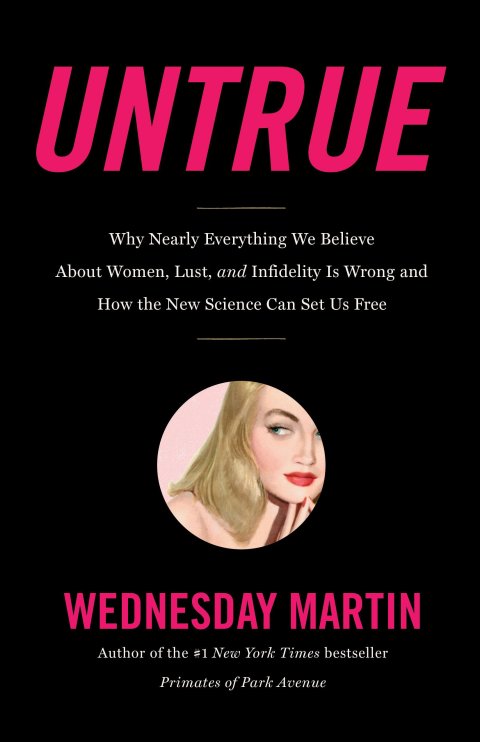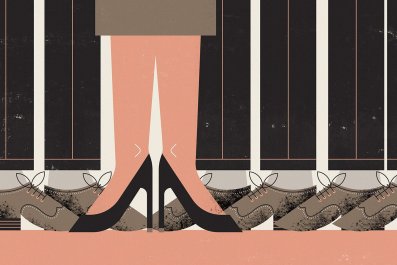Author and cultural critic Wednesday Martin made her name with the splashy and controversial 2015 best-seller Primates of Park Avenue, which had Martin infiltrating New York's Upper East Side wife-and-mommy set. Faulted for superficiality, the author approached her latest topic—female infidelity—with more rigor, while still making it personal. "I make no secret of the fact that I was very unsuccessful at monogamy in my 20s," Martin, now 52, tells Newsweek.
Untrue: Why Nearly Everything We Believe About Women, Lust, and Infidelity Is Wrong and How the New Science Can Set Us Free (Little, Brown Spark, out September 18) digs into the latest research on female desire and includes interviews with experts on "consensual non-monogamy," as well as women who cheat. "What we've been taught about female sexuality is untrue," she says of the commonly held assumptions she hopes her book will disprove. "The female libido, when measured correctly, is every bit as strong as the male. Women are sexually weirder than we ever thought—and that's normal!"
Here are five takeaways from Untrue.

1. The gender gap is closing between husbands and wives who cheat.
According to 2013 data from the National Opinion Research Center's General Social Survey, the rate for women who admitted to cheating in heterosexual marriages shot up 40 percent from 1990 to 2010—to 14.7 percent—while husband's infidelity rate stayed the same, at 21 percent.
2. Young women are just as sexually adventurous as young men—maybe more.
A 2017 study from PLOS One (a journal from the Public Library of Science) found that among 189 men and women between ages 25 and 29, the women were nearly twice as likely to have gone to a dungeon, BDSM (bondage, dominance, sadism and masochism), swingers' or sex party in their lifetime. Women of the same age group were also twice as likely to have had group sex.
3. Long-term relationships may negatively affect female desire more than male.
In 2017, The BMJ conducted a study of over 11,000 British women and men in both heterosexual and homosexual relationships. Compared with women who had been in a relationship for less than a year, those who had been in one for over five years were nearly 2.5 times more likely to lack interest in sex. (For men in long-term relationships, there was no significant increase.)

4. More men are on affair-finding websites, but more women use them to meet up for sex.
In a 2011 survey of 5,711 men and women for The Electronic Journal of Human Sexuality, Leanna Wolfe found that of the men on AshleyMadison.com (a subscription dating site for people already in relationships), two-thirds used the site merely to explore fantasies while remaining monogamous in their current relationships. Two-thirds of women, on the other hand, used the site to meet up with "an extra-pair lover."
5. Women, like men, get erections.
In her award-winning 2010 book, Women's Anatomy of Arousal , author Sheri Winston outlines the "female erectile network," also called the "internal clitoris," which goes far beyond just the visible tip of the clitoris. Just like the erectile tissue on a penis, the clitoris, both internal and external, grows and swells when aroused.
















